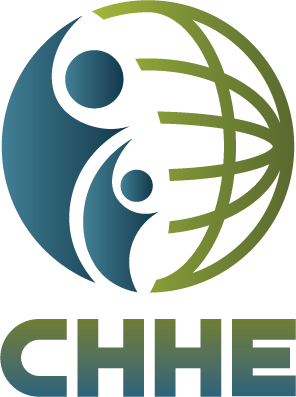Community Engagement in Action
Projects that support our partners and impacted communities to address environmental health issues.
Fish Consumption Advisories
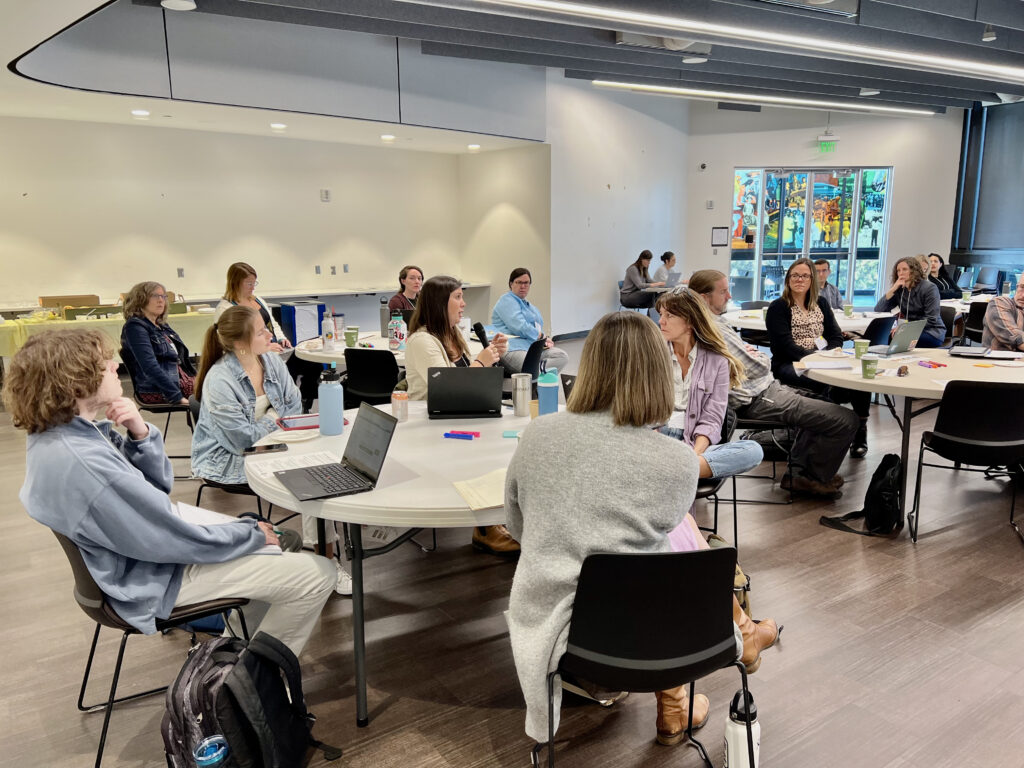
Many freshwater fish in North Carolina are safe to eat, but due to high levels of pollutants in some waterbodies, some fish are not. Often times (but not always!), there are rules of thumb that help people make decisions about consuming fish with lower levels of contamination. In efforts to make it clearer and easier for people to understand which fish are better for them and their families to eat, we have been working collaboratively with state agencies and community engagement professionals at Duke and UNC to engage stakeholders around this issue.
Communicating Advisory Information
The CEC engages state and local health departments, produces resources for educators and public health professionals, and disseminates best practices related to fish consumption advisories. During our NC Fish Forums, we explored innovative approaches to increase understanding of the FCA process, foster greater collaboration among stakeholders, and identify opportunities to improve existing processes. Learn more about the Forum and our ongoing work here.
In partnership with the Duke University Superfund Center, we created a manual with best practices for messaging, language, channels of communication, and avoiding pitfalls related to communicating fish consumption advisories. Take a look at the manual here.
The CEC provided feedback during the development process for NC DHHS’s new fish consumption dashboard, which provides even more information about fish species, water-body specific advisory information, specific contaminants, and health information. View the new online dashboard here.
PFAS Chemicals
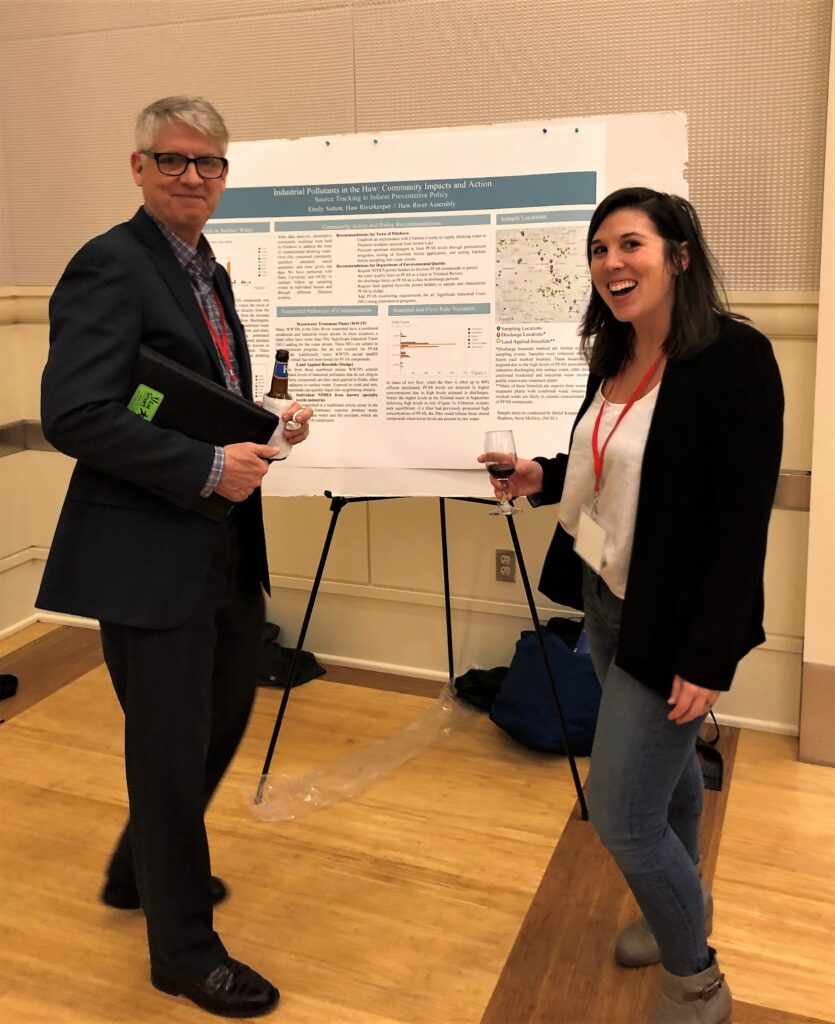
In 2016, Center researchers published data showing elevated levels of PFAS chemicals in the Cape Fear River and in residential drinking water. The Cape Fear River basin is the largest watershed in North Carolina and provides drinking water to almost 2 million people. Since then, the CEC has been working closely with scientists, impacted community members, nonprofit organizations, and decision makers to understand and address PFAS contamination throughout the river basin.
Supporting Impacted Communities
The CEC helps provide and facilitate spaces for community members to voice their questions, concerns, and local knowledge about PFAS directly to researchers. We do our best to use this information to inform Center science and engagement efforts.
The CEC collaborates with researchers and community members to develop materials that translate and disseminate PFAS science in a way that is actionable and responsive to people’s actual concerns. See examples of some of these resources here.
Many CHHE members are studying PFAS and other emerging environmental health challenges. The CEC helps members who are conducting studies that rely on public participation to report back their results in ways that are clear, respectful, and actionable. See examples of the GenX Exposure Study’s report back materials here.
As people learn about PFAS, many are interested in learning more about their drinking water. In response to requests from River Keepers and community partners, we are creating an online dashboard that makes it easier for residents to access information about their municipal drinking water. See the dashboard here.
Toxic Metals
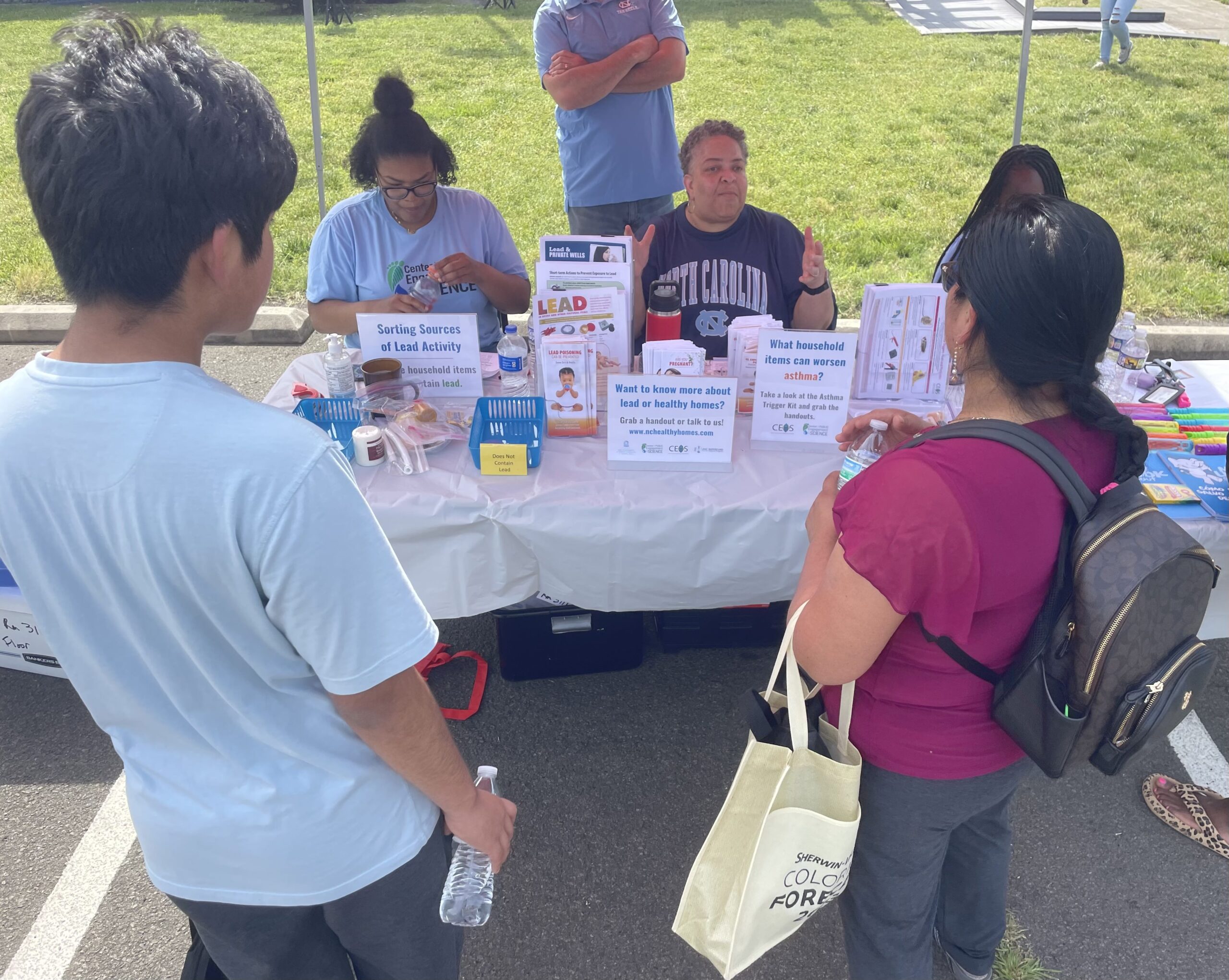
Although metals can occur naturally in the environment and be perfectly safe, some communities face increased exposure to metals—often from current or historical industrial sources—which can cause negative health effects, especially in children. The CEC works closely with Center researchers who study the environmental and human health implications of exposure to metals, as well as the communities directly impacted by known or suspected sources of toxic metals.
Durham, NC
In 2015, CHHE research showed elevated levels of both lead and cadmium in blood samples from residents of Durham, NC. In 2025, lead remains an ongoing public health concern, and multiple city parks have been closed due to high levels of lead contamination. The CEC has been in ongoing collaboration with community-based organizations to address lead and other toxic metals in Durham, including co-hosting community events and lead remediation workshops, producing educational resources, and screening residential soil samples for metals. Learn more about SoilShops and screening soil for lead here.
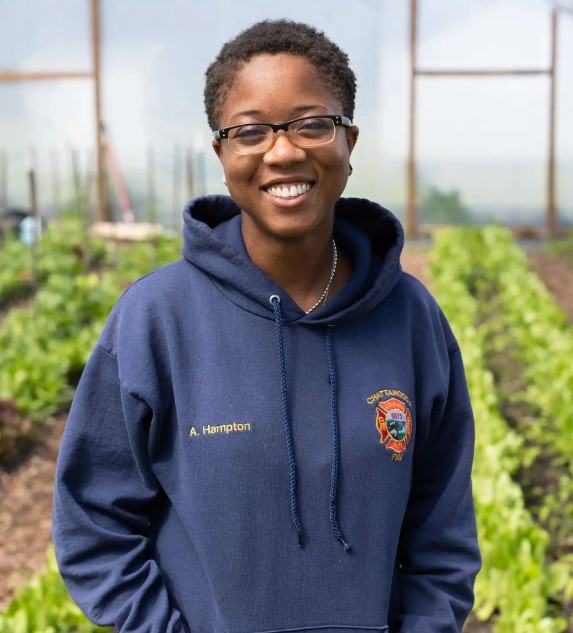
Field-based Soil Screening
Durham is not the only community concerned about the presence of lead and other metals in their environment. The CEC and Center researchers have received increasing inquiries to screen soil in residential areas for heavy metals. Now, CHHE has a portable XRF, which gives CHHE the capacity to conduct reliable field-based screening for metals, allows the CEC to respond more rapidly to community concerns, and highlights the opportunity that soil science presents for contributing to environmental health science more broadly. Learn more about the efficacy of portable XRF devices here.
Safer Community Gardens
Ahead of a large community garden initiative, FreedomOrg—a community-based organization working in Princeville, NC—partnered with CHHE to screen for metals and assess which which parcels of land were safe for growing food. More than 30 samples were screened and the results were used to inform the siting and development of their agricultural areas. We are continuing to work with FreedomOrg and other partners identified by our Stakeholder Advisory Board to leverage the efficiency of the XRF and support safer community gardens.
Working with Educators
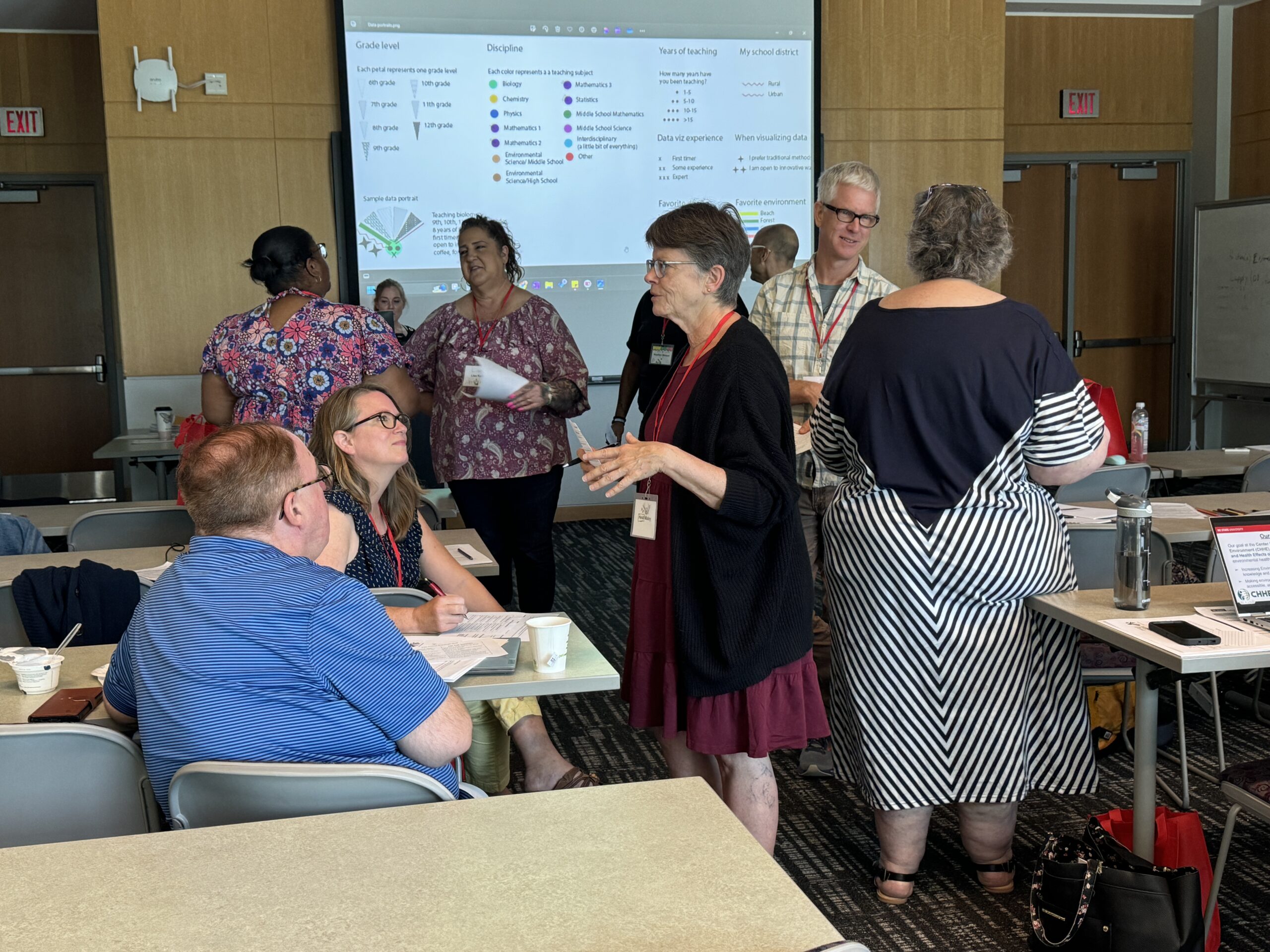
The CEC works closely with formal and informal educators who are interested in translating or applying EHS in their work. We use a train-the-trainer approach, conducting workshops and ongoing programming that builds educators’ capacity in EHS concepts, research practices, and data analysis. We partner closely with K12 experts on campus to ensure that as we translate Center research, teachers will be able to incorporate it in their classrooms while aligning with state curriculum requirements.
Real Teaching with Real Data
Most recently, the CEC co-developed a year-long workshop for middle and high school teachers in partnership with Taryn Shelton, the Science House, and Data Science and AI Academy. Using actual CHHE research and datasets, teachers were introduced to data science techniques, data analysis and teaching resources, and a network of EHS and educator collaborators. The cohort spent summer 2024 building data science skills, working with Center researchers, and creating interdisciplinary lessons together. During the 2024-25 school year, teachers implemented their lessons, and presented on their experiences in Spring 2025. Check out some of the activities and lessons they created here.
CHHE works with PFAS SRP to share information about PCBs in building materials and related health effects during webinar with researchers from the Iowa Superfund Research Program

